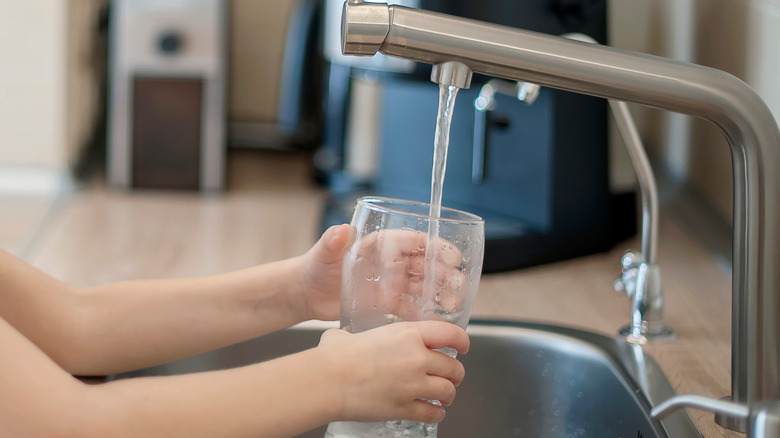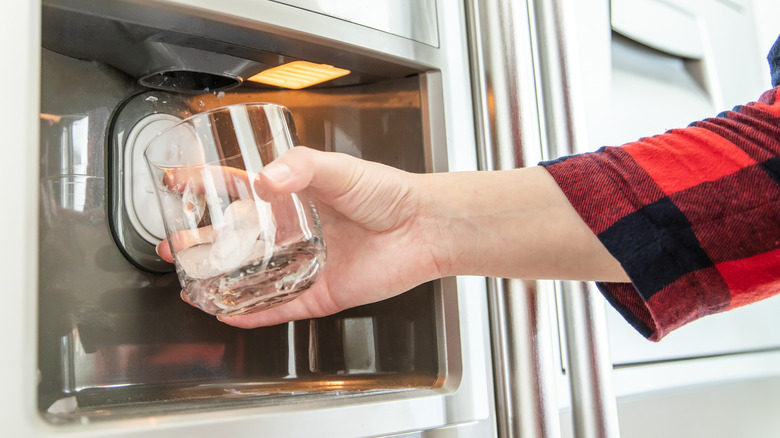What Really Happens If You Never Change Your Water Filter
Water is vital to our health and survival. Therefore, it's no wonder that we would want to do everything in our power to keep our water as clean as it can be. In the United States, the public water supply is routinely tested and treated to ensure that the water is safe for human consumption (via Tapp Water). However, there are a multitude of reasons why one may choose to implement extra precautions through the use of a water filter. Damaged pipes, the taste of chemically-treated water, or concerns over the chemicals themselves, are all reasons why some people opt for the added layer of protection offered by a water filter.
Just like an AC filter, water filters also need to be changed regularly. But as we all know, sometimes life happens, and we may end up letting our filter sit for a little longer than intended. How often the filter should be changed will depend on the type of filter being used. For example, a frequently used refrigerator water filter should be replaced every six months (via Fresh Water Systems). On the other hand, the filter used in a standard model Brita pitcher should be changed every two months (via Brita).
Ok, so we know water filters need to be changed. But even so, an unchanged filter is still better than no filter at all ... right?
An unchanged water filter can lead to the buildup of bacteria
Water filters are not designed to be effective for life. At some point, they no longer function as they used to, and a fresh filter is needed to keep water free of contaminants. Additionally, you don't want to wait until your water tastes funky to change the filter. Reason being, signs that your water is no longer fresh are not always so obvious (via Fresh Water Systems).
Whether you have a pitcher filter, refrigerator filter, or a filter directly connected to your faucet, the biggest risk that comes with failing to change your water filter is contamination from germs and bacteria (via Tapp Water). While some degree of bacteria in water is unavoidable, excessive buildup can cause us to become ill.
Neglecting to change your Brita filter can change the appearance of your water. What was once crystal clear, may now look cloudy and foggy in color (via Purification Life). Not only that, but an old filter will eventually reduce the amount of water you're able to pour out. With so much contaminant buildup blocking its exit, the water is unable to flow freely.
Similarly, leaving your refrigerator filter unchanged can also affect the taste, smell, and appearance of your water. What's more concerning, however, is that you are no longer as well protected as you originally were against harmful compounds such as lead, pesticides, or pathogens that can be found in contaminated drinking water (via Abt). Additionally, an unchanged refrigerator filter can cause damage to the appliance itself.
Therefore, it's important to pay close attention to all instructions when it comes to your water purification system. Doing so will keep your water clean and tasting fresh.

